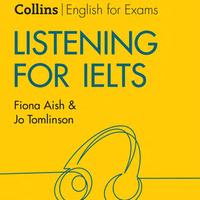7- 52
Hannah: Hi everyone! Sorry I'm late.
Louise: Don't worry, Hannah, we've only just started. We thought we should go over the theories we've studied so far on the course so we're ready for the seminar discussion on Thursday afternoon.
Hannah: Of course, you're right. I don't think I can remember all the theories related to consumer energy consumption.
Mike: No, Hannah. That's the reading for Friday's lecture. Thursdays' seminar discussion is about the current thinking on alternative energy.
H: Oh, yes. Sorry. I'm a bit disorganised at the moment.
L: Never mind. So, Mike, what do think about the academics' points of view on nuclear energy?
M: Well, I think I have to agree with them on price being a factor for choosing nuclear in the long term.
L: Me too. It's definitely the most cost-effective measure. Don't you agree, Hannah?
H: To start with I didn't, but the text Professor Edwards gave us persuaded me. The only thing that concerns me is that there have been some disasters in various parts of the world.
L: Yes, some of the texts warn of the dangers of nuclear power, using previous disasters as examples.
M: I know what you mean, but suppose the risk is minimal these days. What do you think about wind and solar energy in terms of the price in relation to the advantages? For me, they're just not worth it – both are expensive, and it's difficult to predict the amount of energy each one will produce.
H: You know, Mike, I'm afraid I don't share your opinion. This text here talks about the likelihood of improved technology increasing the amount of energy and reducing the costs in the future.
L: Yes, but there's not enough proof to be sure of the relationship between the cost and the benefits.
M: Exactly, the evidence seems incomplete to me.
H: Well, that's something we can follow up on with the rest of the group in the seminar on Thursday.

